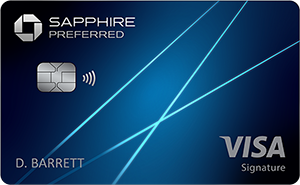Christine Krzyszton
Christine Krzyszton
Senior Finance Contributor
353 Published Articles
Countries Visited: 100U.S. States Visited: 45
Christine ran her own business developing and managing insurance and financial services offices. This stoked a passion for points and miles and she now has over 2 dozen credit cards and creates in-dep...
Edited by: Juan Ruiz
Juan Ruiz
Senior Editor & Content Contributor
417 Published Articles 1067 Edited Articles
Countries Visited: 41U.S. States Visited: 28
Juan has extensive experience in writing and editing content related to credit cards, loyalty programs, and travel. He has been honing his expertise in this field for over a decade. His work has been ...
& Kellie Jez
Kellie Jez
Director of Operations & Compliance
6 Published Articles 1294 Edited Articles
Countries Visited: 10U.S. States Visited: 20
Kellie’s professional experience has led her to a deep passion for compliance, data reporting, and process improvement. Kellie’s learned the ins and outs of the points and miles world and leads UP’s c...
![Best Credit Cards for College Students and Recent Graduates [2025]](https://upgradedpoints.com/wp-content/uploads/2024/07/Chase-Sapphire-Chase-Freedom-in-Wallet-Upgraded-Points-LLC-2.jpg?auto=webp&disable=upscale&width=1200)




![IHG One Rewards Traveler Credit Card — Review [2025]](https://upgradedpoints.com/wp-content/uploads/2023/06/IHGOneTravelerCard.png?auto=webp&disable=upscale&width=1200)
![IHG One Rewards Premier Credit Card Review – Full Review [2025]](https://upgradedpoints.com/wp-content/uploads/2019/08/IHG-One-Rewards-Premier-Credit-Card-.png?auto=webp&disable=upscale&width=1200)
![Capital One Venture Rewards Credit Card — Full Review [2025]](https://upgradedpoints.com/wp-content/uploads/2019/06/Capital-One-Venture-Card.png?auto=webp&disable=upscale&width=1200)
![IHG® Rewards Club Select Credit Card — Full Review [2025]](https://upgradedpoints.com/wp-content/uploads/2018/03/IHG-Select-Card.jpg?auto=webp&disable=upscale&width=1200)